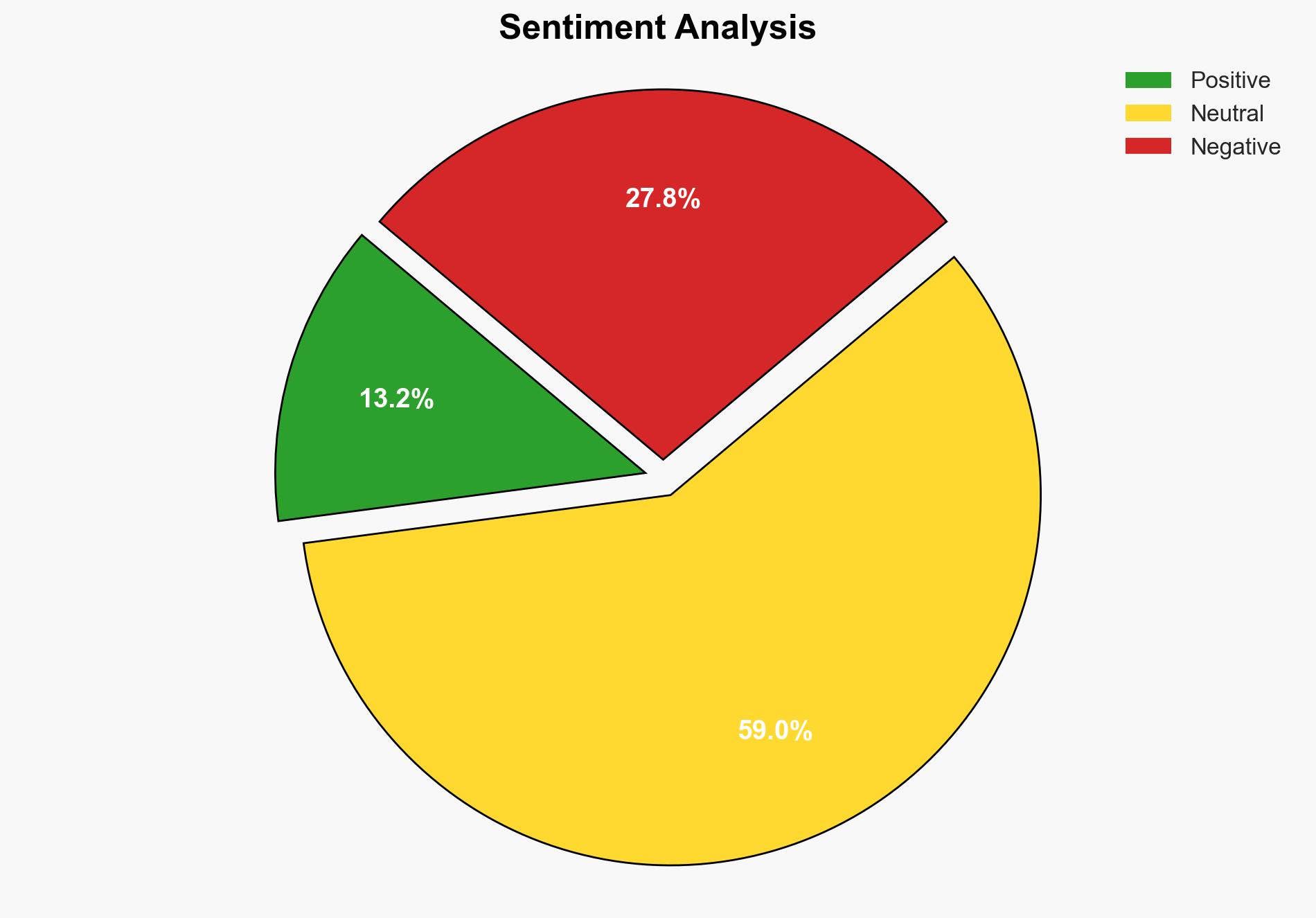Why is the US bombing Yemen in the first place – Vox
Published on: 2025-03-27
Intelligence Report: Why is the US bombing Yemen in the first place – Vox
1. BLUF (Bottom Line Up Front)
The US military actions in Yemen, particularly airstrikes targeting the Houthis, are primarily driven by the need to protect international shipping routes and reestablish deterrence in the region. Despite pledges to reduce military commitments, these operations continue due to ongoing threats posed by Houthi attacks on shipping vessels. The strategic objective is to ensure freedom of navigation in the Red Sea and to counteract Iranian influence in Yemen. However, these actions raise legal and ethical concerns, particularly regarding civilian casualties and compliance with the War Powers Resolution.
2. Detailed Analysis
The following structured analytic techniques have been applied for this analysis:
General Analysis
The US has conducted nearly daily airstrikes in Yemen, targeting Houthi leaders and infrastructure. This military campaign is a response to Houthi missile and drone attacks on ships in the Red Sea, which have disrupted international shipping and forced vessels to reroute. The Biden administration, alongside European allies, has initiated military operations to protect these shipping lanes. Despite a ceasefire between Israel and Hamas, the Houthis have continued their attacks, prompting further US military action. The legal justification for these strikes is debated, with questions about their alignment with the War Powers Resolution and the broader strategic objectives.
3. Implications and Strategic Risks
The ongoing military operations in Yemen pose several strategic risks. These include:
- Potential escalation of conflict in the region, leading to broader instability.
- Increased tension with Iran, which supports the Houthis, potentially affecting diplomatic relations.
- Economic impacts due to disruptions in international shipping routes, affecting global trade.
- Legal and ethical concerns over civilian casualties and compliance with international law.
4. Recommendations and Outlook
Recommendations:
- Enhance diplomatic efforts to negotiate a lasting ceasefire with the Houthis to reduce military engagements.
- Strengthen international partnerships to ensure collective security measures for shipping routes.
- Implement stricter oversight and accountability mechanisms to minimize civilian casualties and adhere to legal frameworks.
Outlook:
In the best-case scenario, diplomatic efforts lead to a reduction in hostilities and stabilization of shipping routes. The worst-case scenario involves further escalation, drawing in additional regional actors and complicating international relations. The most likely outcome is a continuation of targeted military actions with intermittent diplomatic engagements, maintaining a tenuous balance between conflict and negotiation.
5. Key Individuals and Entities
The report mentions significant individuals such as Mike Waltz and Pete Hegseth, as well as entities like the Houthis and the Biden administration. These individuals and groups play pivotal roles in the ongoing conflict and strategic decisions surrounding US military actions in Yemen.





